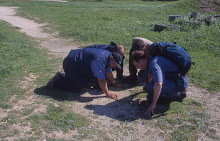
Many scientists complain - I am thinking in particular to the editors of the Italian edition of "Scientific America - Le Scienze" - that science is not present in the public debate and that scientists appear rearely in the media. In Italy this is in part due to the prevalence of the humanistic culture and on the preponderance, until a few decades ago, of Croce phylosophy, that despised science. But the situation is not much different in the english-speaking countries. Even there, where great attention and funding is paid to science, writers and other humanists play a more important role in the society. Incidentallu, a day I was watching Margerita Hack on TV. The astronomer is fascinating, but something was not convincing. After a little, I realized that she lacked a political perspective in her talk. A novelist, a poet, a philosopher, even when speaking of apparently neutral issues, such as love,
always have a political perspective, and in fact intellectuals are writers, since Voltaire and even Pico della Mirandola. This is not the case with scientists, with sparse exceptions, for instance information scientists or Noam Chomsky, or Jared Diamond and many other ecologists. This lack of political perspective dates back, unfortunately, to Galileo. Galileo was not satisfied with the prurely intellectual approach of Copernicus, that stated that his heliocentrism was a purely mathematical idea, and wanted instead to convince the Church of the philosophical and political importance of the subject, that changed completely the vision of the world of the Midlle Ages. The Church almost condemned him to death, and allowed to proceed with scientific research, provided that science had
no political implication. The Church was aware of the practical importance of scientific research, and of the danger of political implications. Nowadays, scientists complain for a reduced role, but inconsciously continue to separate science and politics.

